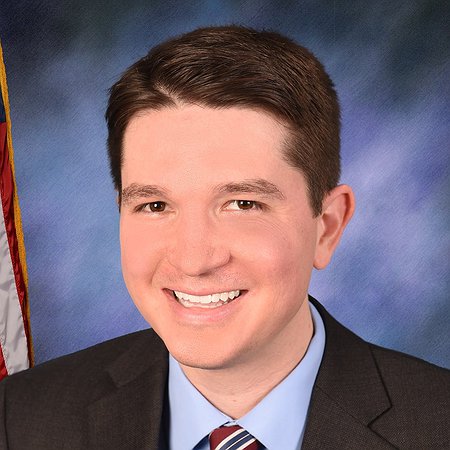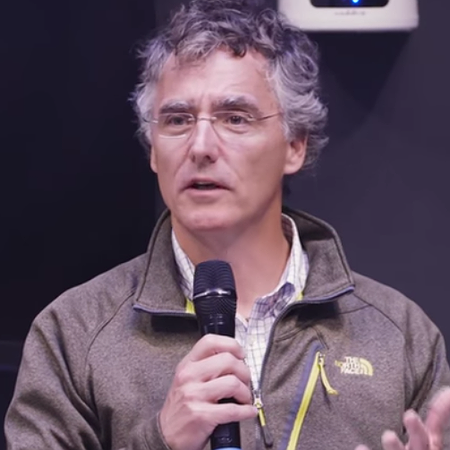Chicago Police Superintendent Larry Snelling Claims That Machine Gun Possession Is Not Eligible For Pretrial Detention
In an op-ed published by the Chicago Tribune, Chicago Police Superintendent Snelling claimed that the Pretrial Fairness Act prevents judges from detaining people pretrial for the possession of a machine gun.
The Briefing

Chicago Police Superintendent Larry Snelling’s claim in his Tribune op-ed published today that “possession of a machine gun alone is not a detainable offense under Illinois’ SAFE-T Act,” is simply false. Possession of a machine gun is and always has been a detention-eligible offense under the Pretrial Fairness provisions of the SAFE-T Act, and is detainable under both the safety and willful flight bases. The section of the law that facilitates this 725 ILCS 5/110-6.1(a)(1), because possession of a machine gun is a non-probationable felony (meaning it carries a mandatory sentence to IDOC). In addition, people accused of possessing a machine gun will generally be charged with “Aggravated Unlawful Use of a Weapon,” which is separately detention-eligible under 110-6.1(a)(6)(O) found at the same link. The latter charge is what makes virtually all gun possession cases (unless someone has a FOID) detention-eligible.
Additionally, 720 ILCS 5/24-1(b) provides in relevant part that “A person convicted of a violation of subsection 24-1(a)(7)(i) [Selling, manufacturing, purchasing, possessing or carrying a machine gun] commits a Class 2 felony and shall be sentenced to a term of imprisonment of not less than 3 years and not more than 7 years, unless the weapon is possessed in the passenger compartment of a motor vehicle as defined in Section 1-146 of the Illinois Vehicle Code, or on the person, while the weapon is loaded, in which case it shall be a Class X felony.”
The Superintendent further uses this false statement of the law to argue that “the absence of pretrial incarceration for mere possession emboldens criminals.” Nothing could be further from the truth. In fact, possession of any gun without a license is detainable, and gun possession cases make up a plurality (if not a majority) of all people currently being ordered detained on any given day in Cook County Circuit Court’s Pretrial Division.
Examples of people being detained for gun possession abound. A Cook County State’s Attorney’s Office press release documenting the first month of the Act’s implementation captures that 64% of people they sought to detain for possession of any gun were denied release. There are also numerous individual examples of people being denied pretrial release since the law changed when they are charged with possession of a machine gun or any other gun, both in Chicago and other jurisdictions.
The Illinois Appellate Court has issued no fewer than three opinions affirming the pretrial detention of people arrested by the Chicago Police Department and charged with possession of a machine gun: Vance, Smith, and Walker. The published court decisions each describe someone who was arrested by the CPD, charged with possession of a machine gun, denied release, appealed that detention decision, and received appellate court review affirming the detention. In the case of Martice Walker, the allegation was that he possessed a gun with an “automatic switch attachment” of exactly the kind focused on in Superintendent Snelling’s op-ed. It simply could not be a more precise demonstration of the falsity of Snelling’s claims about the Pretrial Fairness Act.
Examples of people detained for possession of machine guns are available from other jurisdictions as well: DuPage County 1, DuPage County 2, Peoria County (with switch).
Does the Pretrial Fairness Act Mean Everyone Will Be Released Before Trial?
No. The Pretrial Fairness Act centers the presumption of innocence and ensures that judges make informed and deliberate decisions about who might be incarcerated before trial and what—if any—pretrial conditions people may face when released. This was not the case before; under the old system, a person’s freedom depended on wealth. Prosecutors may file a motion to detain a person accused of any forcible felony, all sex-related charges, all domestic violence charges, and most forms of gun-related felonies if they believe they might pose a threat to another person or the community. Anyone charged with a serious crime can be jailed if they are likely to willfully flee prosecution. And anyone who is already being supervised by the court - on pretrial release, probation, or parole - who is arrested for a new charge can also be held in custody.
The Briefing While the Pretrial Fairness Act does eliminate the use of wealth-based pretrial incarceration, and mandates that many arrested individuals are given a chance to succeed on pretrial rele
The Pretrial Fairness Act is the portion of the SAFE-T Act (Public Act 101-0652) that makes Illinois the first state to abolish money bond. The law includes additional provisions aimed at improving the pretrial process and increases access to the presumption of innocence. . . The U.S. Supreme Court is unequivocal that before trial, release is the “norm” and detention is the “carefully limited exception.” The Pretrial Fairness Act makes Illinois’ pretrial system more effective, efficient, and fair.







